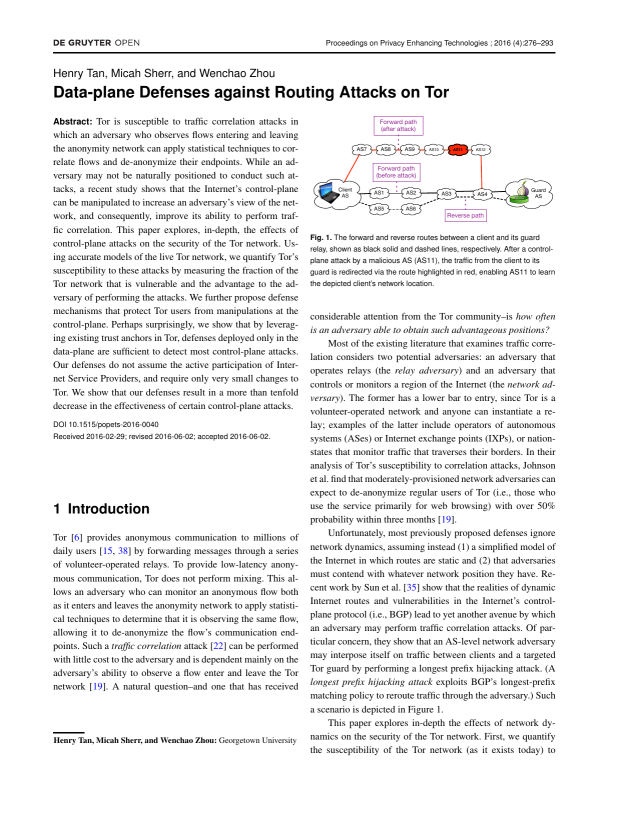Data-plane Defenses against Routing Attacks on Tor
Authors: Henry Tan (Georgetown University), Micah Sherr (Georgetown University), Wenchao Zhou (Georgetown University)
Volume: 2016
Issue: 4
Pages: 276–293
DOI: https://doi.org/10.1515/popets-2016-0040
Abstract: Tor is susceptible to traffic correlation attacks in which an adversary who observes flows entering and leaving the anonymity network can apply statistical techniques to correlate flows and de-anonymize their endpoints. While an adversary may not be naturally positioned to conduct such attacks, a recent study shows that the Internet’s control-plane can be manipulated to increase an adversary’s view of the network, and consequently, improve its ability to perform traffic correlation. This paper explores, in-depth, the effects of control-plane attacks on the security of the Tor network. Using accurate models of the live Tor network, we quantify Tor’s susceptibility to these attacks by measuring the fraction of the Tor network that is vulnerable and the advantage to the adversary of performing the attacks. We further propose defense mechanisms that protect Tor users from manipulations at the control-plane. Perhaps surprisingly, we show that by leveraging existing trust anchors in Tor, defenses deployed only in the data-plane are sufficient to detect most control-plane attacks. Our defenses do not assume the active participation of Internet Service Providers, and require only very small changes to Tor. We show that our defenses result in a more than tenfold decrease in the effectiveness of certain control-plane attacks.
Copyright in PoPETs articles are held by their authors. This article is published under a Creative Commons Attribution-NonCommercial-NoDerivs 3.0 license.

